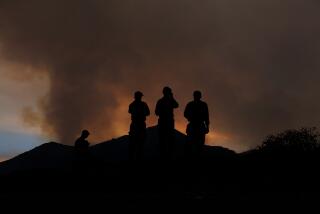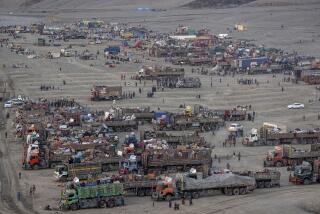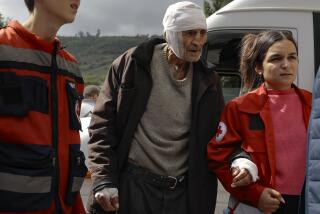Afghans Told to Evacuate Salang Highway Area
- Share via
MOSCOW — The Afghan army warned residents along the Salang Highway to flee their homes because of fierce fighting expected on the vital supply route between Kabul and the Soviet Union, the official Soviet news agency Tass reported Tuesday.
With only one week before the last Soviet troops are due to leave Afghanistan under a peace accord, Tass said Muslim rebels battling the Soviet-backed Kabul government are again attacking food and fuel convoys.
“If the criminal activities of the rebels do not stop, the Afghan armed forces will take the most decisive measures,” Tass quoted the Afghan army command as saying. “The commander in chief is calling on citizens of those regions to leave their places of residence for some time to avoid any unnecessary victims.”
In Kabul, President Najibullah’s beleaguered government said it has distributed guns to 30,000 members of the ruling party. It said about 45,000 party members who had already completed their military service have volunteered for reserve duty or joined self-defense and border units.
Kabul Radio reported Tuesday that more than 150 “extremists” --its term for the rebels--were killed by government forces in the previous 24 hours, many of them in the eastern province of Nangarhar, according to the British Broadcasting Corp.
Earlier, Tass said, the guerrillas launched dozens of rockets at the airport at Kandahar, Afghanistan’s second city, but were driven off and sustained 16 casualties.
In Moscow, Soviet officials said at a news briefing Tuesday that their government is still behind Najibullah. “There have been no nuances or changes with regard to President Najibullah from the Soviet side,” said Deputy Foreign Minister Igor A. Rogachev.
Yuri K. Alexeyev, another ministry official, said about 15,000 Soviet soldiers were killed during the nine-year Afghan conflict--2,000 more than the Kremlin reported in May, 1988. However, he seemed unable to explain the discrepancy and said the new figure “doesn’t mean . . . we had the bloodiest period of the war” during the withdrawal period.
More to Read
Sign up for Essential California
The most important California stories and recommendations in your inbox every morning.
You may occasionally receive promotional content from the Los Angeles Times.










